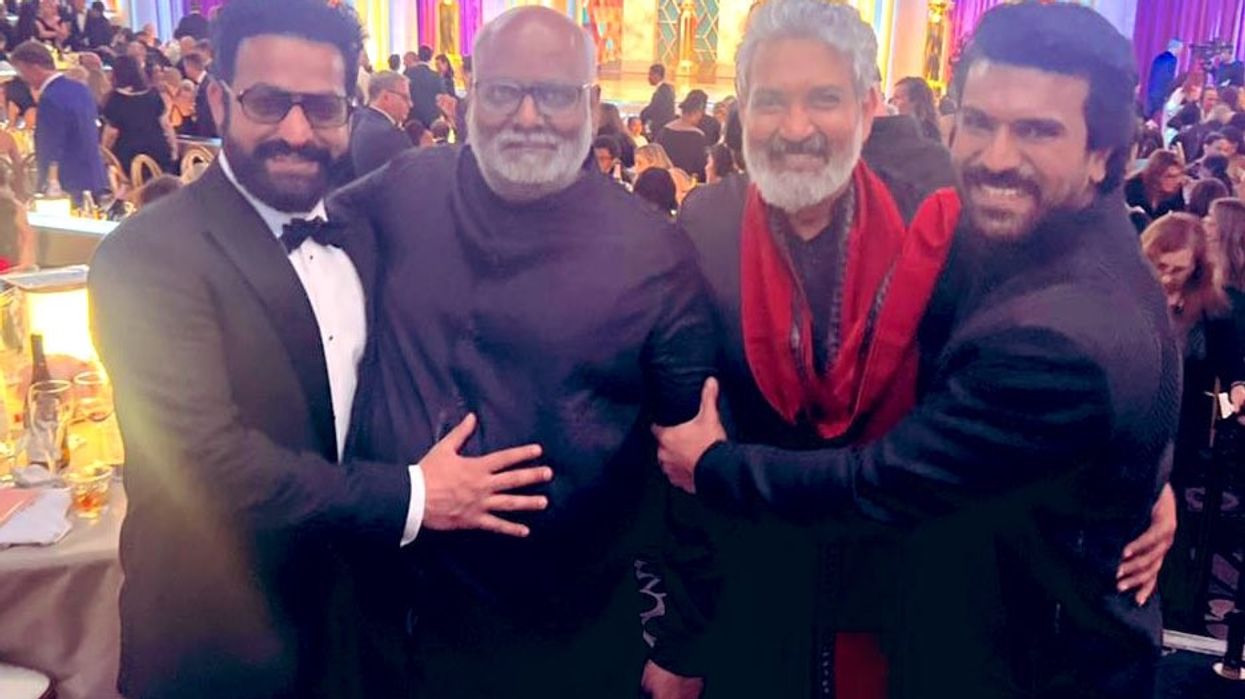India celebrated a rare Hollywood award triumph after local film RRR won a Golden Globe for best song on Wednesday, seeing off competition from US superstars Taylor Swift and Rihanna.
Prime Minister Narendra Modi hailed the "very special accomplishment" after the win by the action movie's barnstorming, high-octane number "Naatu Naatu".
"This prestigious honour has made every Indian very proud," Modi said on Twitter.
Local media reports said it was the first time an Indian film has won an award at the competition.
Produced by southern India's Telugu-language film industry last March, RRR has seen huge audience numbers for a local film -- both at home and abroad.
RRR was also nominated in the best non-English language film category, but lost to "Argentina, 1985".
A scene featuring the song was shot outside Ukrainian President Volodymyr Zelensky's official residence in 2021 -- before Russia's invasion -- according to director SS Rajamouli.
The critically acclaimed Rajamouli, who has produced some of India's biggest blockbusters in the last few years, said that it was a "special" award.
"SPEECHLESS Music truly knows no boundaries. I thank each and every fan across the globe for shaking their leg and making it popular ever since the release. #GoldenGlobes," he tweeted.
In the song, co-stars Ram Charan and Nandamuri Taraka Rama Rao Jr stomp across the floor in a vigorous routine that blends multiple dance styles and has sparked viral imitations online.
"It took me two months to choreograph it. We shot for 20 days and did 43 retakes," choreographer Prem Rakshit told Indian media.
Bollywood star Shah Rukh Khan joined others to celebrate the win.
"Sir just woke up and started dancing to Naatu Naatu celebrating your win at Golden Globes," Khan told Rajamouli on Twitter. "Here's to many more awards & making India so proud!!" he added.
Khan's fellow Bollywood superstar Akshay Kumar said it was a "proud moment".
Led by the Hindi-language Bollywood, India has the world's most prolific film industry.
It churns out thousands of movies each year in multiple Indian languages, which are also dubbed and consumed by audiences across South Asia, Central Asia, Africa and beyond.
Rajamouli told The Hollywood Reporter before his win that global recognition was "really important".
"If this buzz really puts a spotlight on our industry and helps me and my filmmakers in the future to take our stories outside the world. So it is really really important to us."
(AFP)




